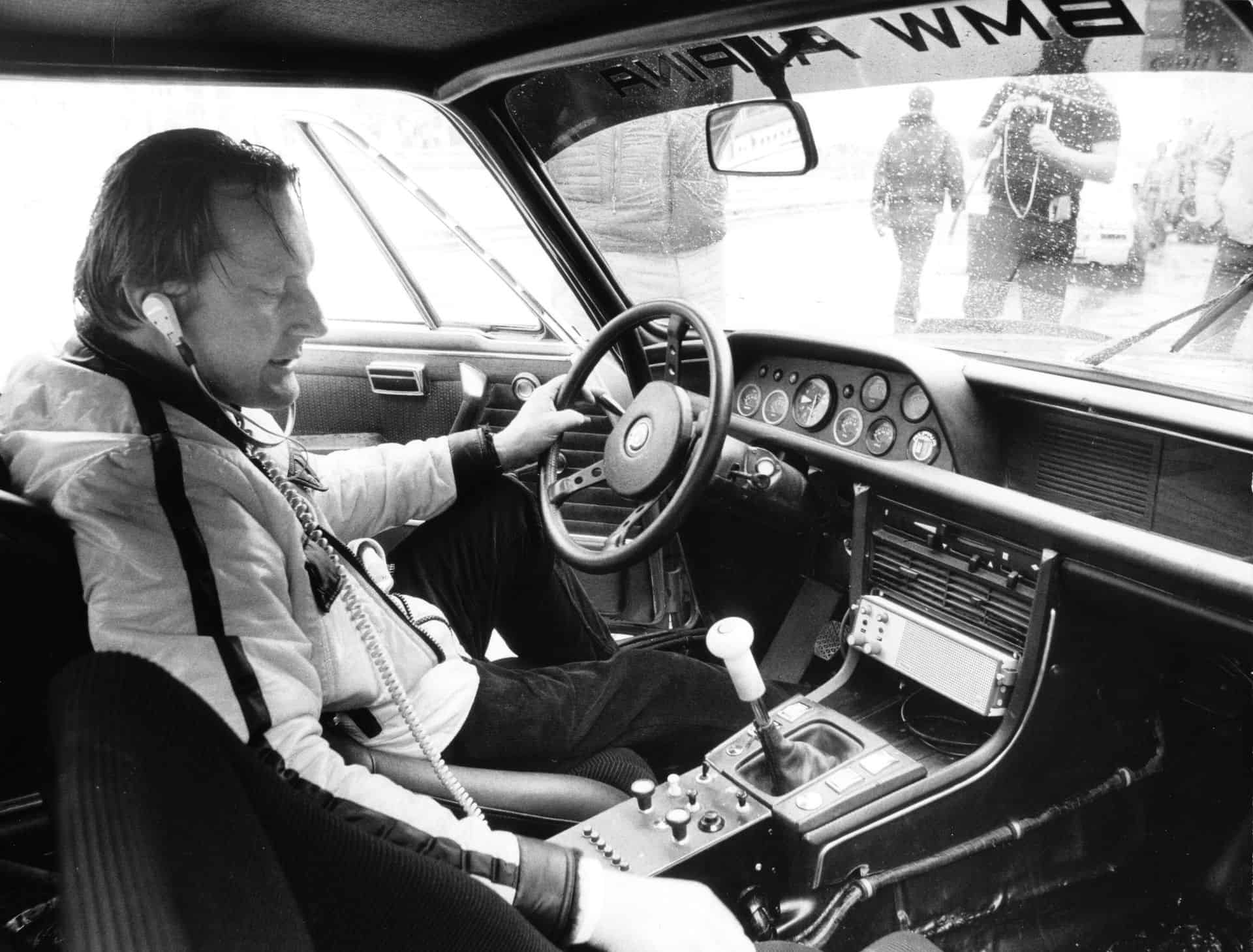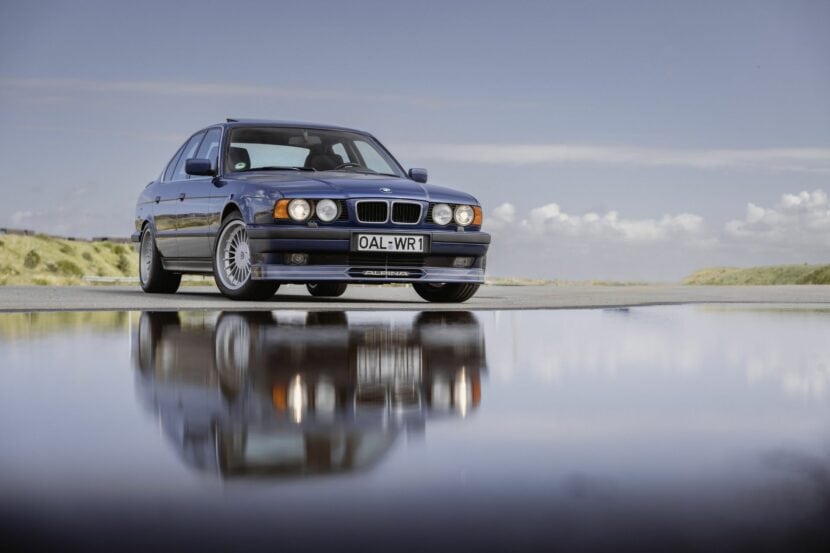The ALPINA family and its dedicated team of employees are deeply saddened by the passing of Burkard Bovensiepen, the visionary behind BMW ALPINA cars, says a press release issued today. On October 12th, 2023, Burkard Bovensiepen bid farewell at the age of 87, leaving behind a remarkable legacy. Born in Chemnitz on September 1, 1936, Burkard’s fascination with automobiles ignited at a young age. Following his high school graduation, he embarked on an apprenticeship as a toolmaker, eventually transitioning to mechanical engineering studies at TU Munich before switching to business administration.
The ALPINA Carburetor Intake
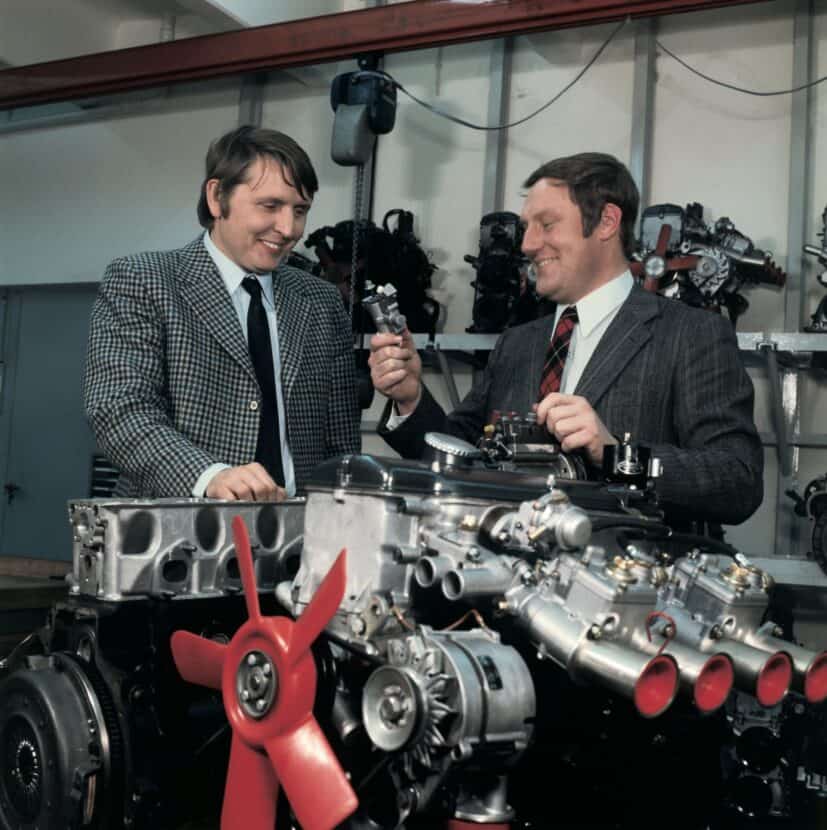
In the early 1960s, Burkard had a groundbreaking idea – to develop performance-enhancing carburetor intake systems for various car brands. The ideal canvas for his innovation emerged in the form of the new BMW 1500, boasting a cutting-edge 4-cylinder engine and ample engine bay space. In 1963, the inaugural ALPINA carburetor intake system for the BMW 1500 was born, receiving accolades from the prestigious “auto motor und sport” magazine.
In September, at the International Motor Show in Frankfurt, Burkard, then a budding entrepreneur, couldn’t afford his own booth. Instead, he cleverly slipped brochures describing the dual carburetor intake system under the windshield wipers of every BMW 1500 in the parking lot, which proved to be a savvy marketing move leading to the sale of the first hundred carburetor kits. Further, BMW in Munich endorsed Burkard’s venture by affirming that the performance enhancement was a safe addition, preserving the BMW warranty – a nod of approval from the BMW board.
Where Does The Name ALPINA Come From?
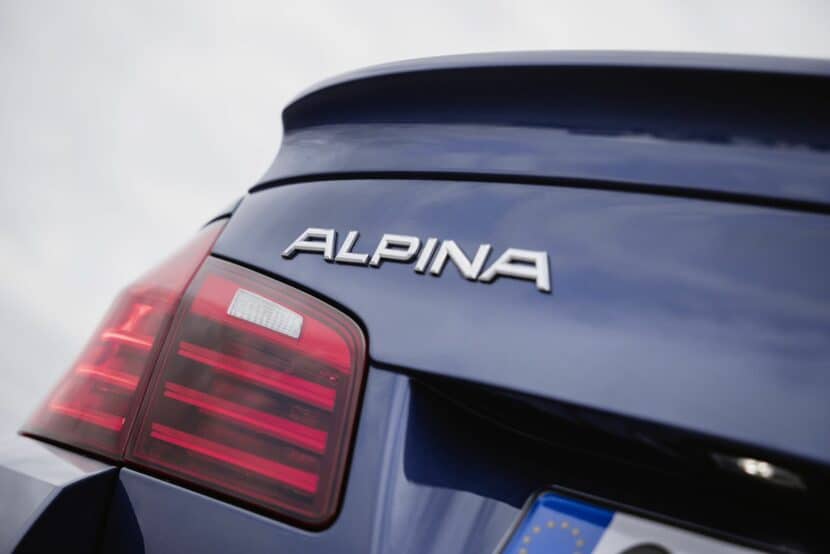
Burkard adopted the name “ALPINA” from his father’s typewriter factory, a nod to the nearby Alps, giving it an international appeal. To achieve global recognition, ALPINA ventured into motorsports in the late 1960s, where competitiveness and technical prowess could shine. Racing legends like Derek Bell, James Hunt, Jacky Ickx, Niki Lauda, Hans Stuck, and Dieter Quester joined the ALPINA team. In this era, ALPINA and BMW claimed victory in the European Touring Car Championships in 1970, 1973, and 1977, showcasing their racing prowess. During this time, Burkard also became known for his legendary self-grilled steaks served in the paddock.
From Tuner to Automaker
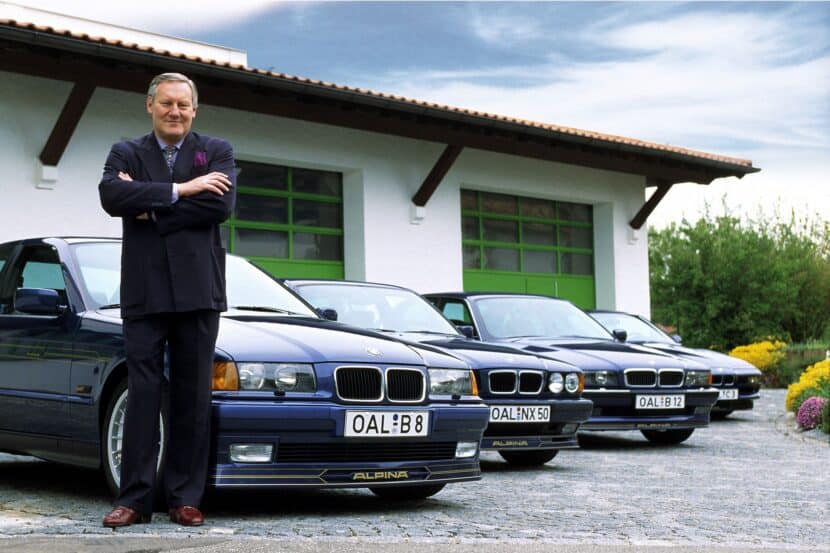
In 1978, in South Tyrol (Austria), ALPINA unveiled three groundbreaking in-house developments – the BMW ALPINA B6 2.8, a BMW 3 Series with a 2.8-liter inline six-cylinder engine and 200 hp; the BMW ALPINA B7 Turbo, based on the BMW 5 Series, then the world’s fastest sedan; and the BMW ALPINA B7 Turbo Coupé, a powerful sports coupé with 300 hp. These remarkable vehicles marked the transition from a tuner to a producer of exclusive automobiles.
Burkard Bovensiepen was a passionate advocate for causes that mattered to him, be it professional, political, or economic. His dedication led to pioneering innovations, such as introducing metal catalysts with low exhaust back pressure and highly efficient conversion rates in production road cars. He emphasized this achievement with a major advertising campaign titled “Traffic Policy 1985 – Dear Federal Government!” His message was clear – to tackle environmental challenges with cutting-edge technology and build the world’s cleanest cars right in Germany.
The ALPINA Wine Business
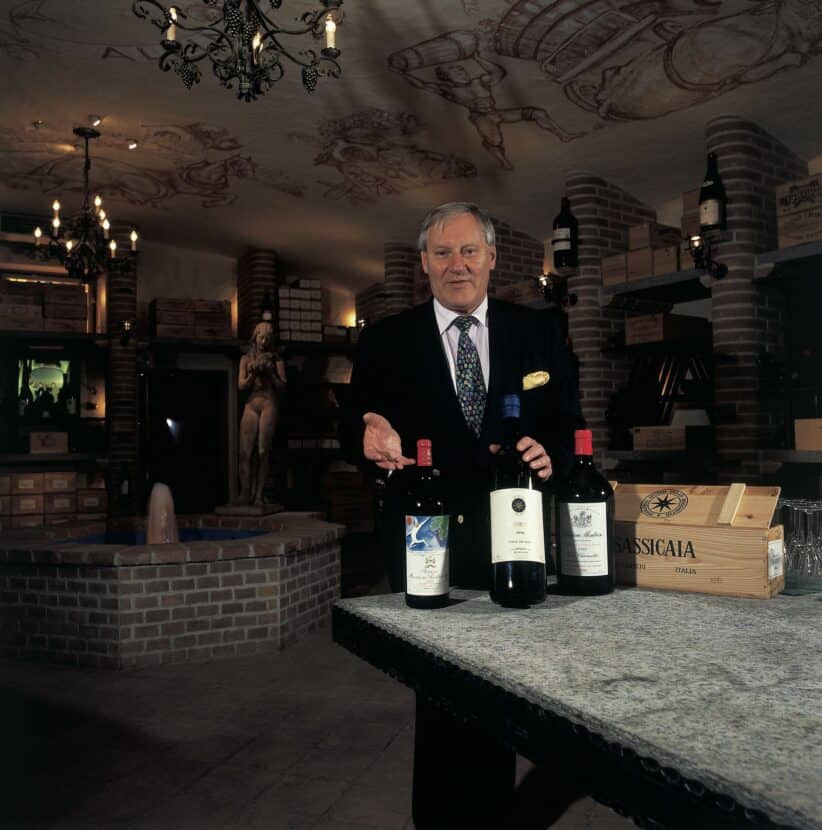
During his journeys to the European Touring Car Championship venues in Italy, France, and Spain, Burkard developed a fondness for what he called “proper” wine. Realizing his wine collection exceeded the capacity of his personal cellar, he transformed his passion into a business, founding the ALPINA wine enterprise, offering fine wines from renowned regions.
Through his commitment to quality, unwavering perseverance, and excellent negotiation skills, Burkard secured exclusive import rights for Antinori’s Supertuscan, the 1975 Tignanello, directly from the vineyard. As a condition of the deal, he also acquired wine from a lesser-known winery called Sassicaia. Today, Sassicaia is one of Italy’s most celebrated wines and a flagship product for ALPINA. The wine business now supplies approximately 1,000 gourmet restaurants and hotels across Germany, a testament to Burkard’s dedication to excellence in all his endeavors.
Some milestones:
- 1964 Development of the Weber dual carburetor system for the BMW 1500.
- 1965 Establishment of ALPINA Burkard Bovensiepen KG.
- 1970, 1973, and 1977 victory in the European Touring Car Championships.
- 1971 Project management for the BMW lightweight coupe 3.0 CSL.
- 1979 Establishment of the ALPINA Wine Business.
- 1980 Expansion of the distribution network overseas – Japan.
- 1983 Registration as a car manufacturer with the Federal Motor Transport Authority.
- 1989 Introduction of the BMW ALPINA B10 Bi-Turbo, then the world‘s fastest sedan.
- 1993 ALPINA SWITCH-TRONIC, manual shifting of automatic transmissions using buttons on the steering wheel.
- 1995 Presentation of the BMW ALPINA B8 4.6 – the first BMW 3 Series with a V8 engine.
- 1995 SUPERKAT – ALPINA becomes the world‘s first manufacturer to introduce a heated catalytic converter as standard in the BMW ALPINA B12 5.7 E-KAT.
- 1999 Presentation of the BMW ALPINA D10 Bi-Turbo, ALPINA‘s first diesel engine.
- 2003 Entry into the American market with the BMW ALPINA ROADSTER V8 in collaboration with BMW.
- 2004 Introduction of the BMW ALPINA B7 with a supercharged engine using a mechanically driven radial compressor.
- 2007 More than 1,000 automobiles delivered worldwide for the first time.
- 2008 New construction of a research and development centre with five engine test beds and a rolling road for emissions testing.
- 2011 Victory in the German GT3 Championship, ADAC GT Masters. • 2015 50th anniversary of ALPINA.
- 2019 40 years of ALPINA WINE.
- 2021 Over 2,000 automobiles delivered worldwide for the first time.
[Source: ALPINA]


